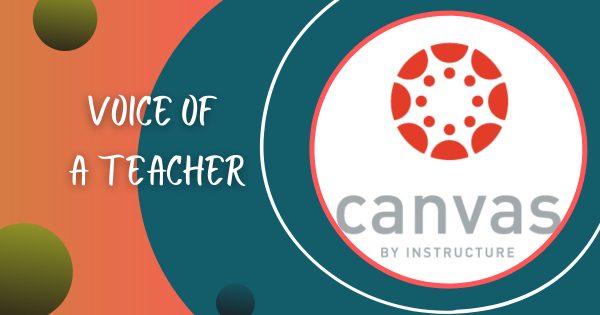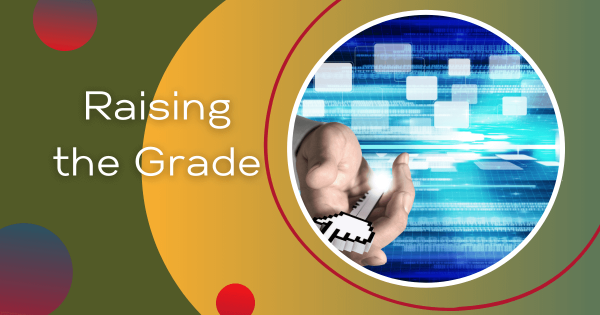Due to adjusting to her new position at Emerson, Adler was unable to take full advantage of this new Canvas system. “Many of my students want to be able to access assignments at the time and place of their choosing—rather than having to write it down in class or search their inbox for my weekly assignment emails. I totally get
Teaching
Across today's schools, innovation meets inspiration and curiosity sparks boundless learning. In our STEM-focused education world, teaching will often be a truly exhilarating journey—even more so when fueled by key principles of science, technology, engineering, and math. In a 21st-century classroom, educators serve as navigators, igniting flames of inquiry and guiding children through intricate pathways of discovery. These days, each lesson is often a blend of hands-on experimentation, collaborative problem-solving, and critical thinking exercises. By implementing these teaching styles, teachers often better prepare the next generation of innovators and problem solvers. STEAM-focused educators in today's classrooms not only convey knowledge, but also facilitate exploration, encourage students to ask questions, challenge assumptions, and explore the world around them.
From coding and robotics to environmental science and mathematics, modern curricula are diverse and adaptive, mirroring the landscape of STEM. In a K-12 classroom, failure is not feared, but celebrated as a stepping stone towards greater understanding. Through trial and error, students learn resilience, perseverance, and that success can arise from perseverance in the face of challenges. Today's instructors beautifully understand this importance of their role in fostering inclusion and diversity in STEM fields. With teaching practices that prioritize equitable access to resources and opportunities, teachers can ensure kids feel empowered to pursue passions and contribute to their STEAM community. Explore the content on inspirational teaching approaches below to help unlock authentic growth in students. Together, we can inspire the next generation of scientists, engineers, and innovators to succeed.
-
Eduporium Talks: Elementary Teacher, Earl Jones
“Nowadays, I see teachers using technology everyday, from showing YouTube clips of math skills to using CAD programs to teach science and math. I believe that some teachers should consistently be using technology more. This is the generation who grew up with laptops and iPods. Hear more from Earl in this edition of ‘Eduporium Talks.’ -
Eduporium Weekly | eLearning in 2015-16
Once you have students’ full attention, set clear objectives and frame them in a context that they can understand and, more importantly, identify with. Depending on your preference, this can be done by asking your students to reflect (a ‘why’ question) or challenges for them to chase (an ‘identify’ question). Head inside to learn more about this important area of -
The Teacher’s View: Raising The Grade
One thing I struggle with is teaching organic reading and math skills, and how much to teach students to tackle multiple-choice questions. Too often, they can say and write something that shows complete mastery of math and reading, but choose the wrong answer. I’ve found myself far too often telling my students, “One choice is always the ‘gotcha’ choice. -
Edporium Talks: Andre Canty (MTSU)
André Canty is a native of Knoxville, TN and a graduate of South Doyle High School. He began his undergraduate work at Middle Tennessee State University and later transferred to the University of Tennessee. His degree is in English Literature. He also teaches students in grades 7-12 to illustrate Black history. -
Dr. Keith Explores: Cities and Us. Part 2
In the City of Atlanta in Georgia, a huge world class sporting event was held in the summer of 1996. It was the Modern Olympics. It was a great time for the city as it hosted countless visitors and athletes from all over the world. The city officials realized that the city would be ‘choked’ and grind to a -
Dr. Keith Explores: Runoff And Its Effects
Imagine yourself to be a bit of chemical substance that if someone swallows you, they can get very ill. You are flushed down the kitchen sink and you find yourself surrounded by the water that helped to flush you down the sink. You travel through many pipes and end up in a larger pipe and join many other chemical friends. -
Raising The Grade: Assessing Technology Skills
As schools begin to integrate technology into all areas of academics I’m nervous about the extent to which we make this integration meaningful especially in terms of assessments. Inside are three of my own questions and my answers to them. Hopefully, the US education system can begin to move in the right direction. -
Raising The Grade: Equitable Access for All
Internet access. In the US, I’m not sure if it’s a luxury or a necessity. However, I am sure that children today benefit from using the Internet to supplement their traditional school education. We know that there are books, videos, games, and countless other online resources to help children learn.













